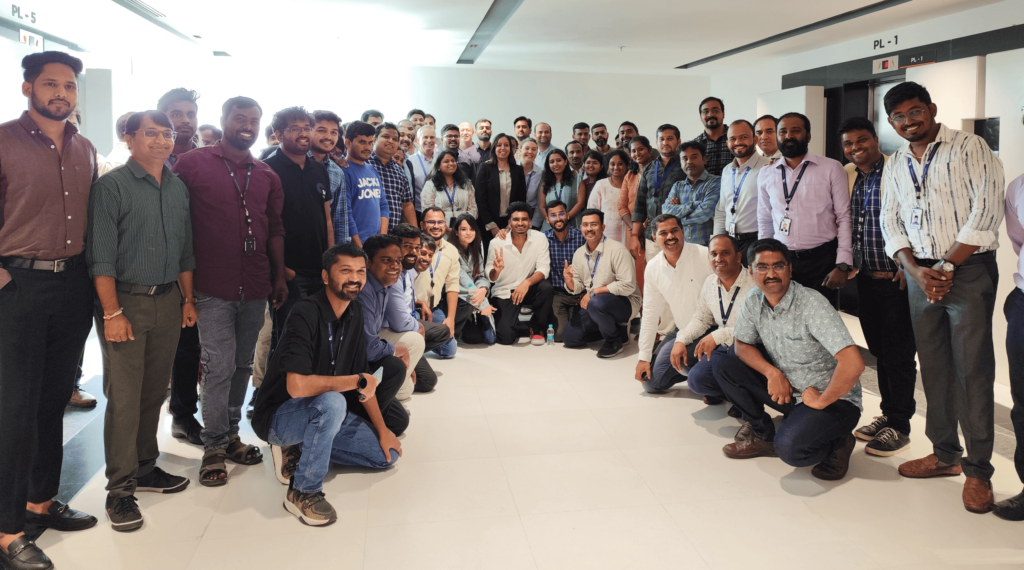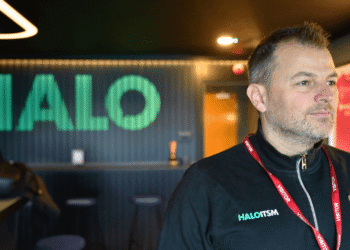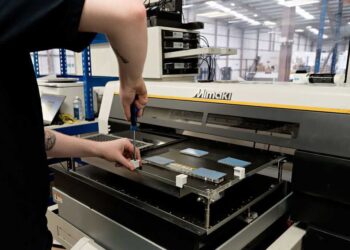Bell Integration is setting up hubs in the US and the Middle East as it guns for international growth, CEO Manpreet Gill revealed as she opened up on its AI strategy and recent company split.
An enigmatic industry success story, privately held Bell broke the £1bn revenue barrier in its fiscal 2024 on the back of an extended purple patch of organic growth.
That was enough to thrust it into sixth place in IT Channel Oxygen’s Oxygen 250 rundown of the UK’s top channel partners by revenue.
Parting with procurement
But talking to IT Channel Oxygen, Gill revealed the Portsmouth-based outfit is now 100% focused on systems integration after formally spinning off its procurement business last April.
Bell Procurement – or Nomia as it is now known – generated around half of Bell’s revenues and now functions as an independent business spearheaded by Bell Chairman Nick Petheram.
The move was the culmination of a two-year plan aimed at allowing Bell to focus on the core SI business originally founded by Alastair Bell in 1996 (Bell also span off its £9m-revenue Hamilton Rentals business in an MBO in September).
“Because [Bell Procurement] had very different offerings and markets, it just made sense for it to do its own thing for Bell to continue its journey,” Gill explained.
“Revenue is a great optic, but we’re focused on sustainable growth and profitability.”
Revealing the recipe for growth
Bell Procurement (which was only established in 2016) and Bell’s SI arm had grown in parallel in recent years, Gill said, with the latter focused on serving large customers in verticals including telco and finance.
She attributed the SI business’ growth partly to its decision to restructure around five practices, namely technology, IoT, cloud infrastructure & security, modern workplace, and AI.
The last of these was bolstered by Bell’s February 2024 acquisition of the 300-employee managed services team of global AI software outfit Amelia.
“Within those practices, we’ve simplified the offerings, targeting key areas of value for our customers instead of trying to do everything,” Gill said.
“We’ve really enhanced our kitbag with the AI offering, covering the core with agent-based, generative and predictive AI solutions, with a suite of technology, services, enablement and IP that accelerate outcomes and value for our customers.”
She continued: “By focusing on the customer business drivers with AI rather than just IT, we are more relevant to 100% of the customer’s business rather than just the 4% or so IT budget. This allows us to penetrate deeper into existing customers and we’re also winning new logos.
“With the changes we have made to our business, we are seeing the results of many years of hard work from across the team.”
Getting familiar with Amelia
With many channel partners focusing their AI efforts around Microsoft Copilot, the addition of Amelia hands Bell two differentiators, Gill claimed.
The first is that Bell is one of the few partners to boast genuine AI scale, she claimed.
“We’ve got a practice of close to 400 people who are across geographies and have massive skills sets on all the latest technologies. That makes us quite different compared to most of our ecosystem,” she said.
“We could have grown this organically, but it’s harder to attract new customers and the best talent when you don’t have an established base.
With the fast-moving pace of AI, if we had grown organically, we might have missed the opportunity. Things would have evolved and moved on. So when this opportunity came up through one of our partners, of course we were going to go for it – and I think it’s our biggest acquisition to date.”
The second is that Bell has now established its own AI training programme, Gill said.
Global grab
With its staff based largely in the US and India, Amelia transformed Bell from a “UK-centric business to a multi-national one overnight”, Gill said.
Around 470 of Bell’s 970 staff are located in the US, India, Spain, Slovakia and the Middle East.

Bell now plans to tap into further international AI and cloud growth by establishing “hubs” in the US (potentially in Austin, Texas) and in the Middle East, Gill explained.
“For us it’s about international growth,” Gill said when asked about the milestones that would make it a successful 2025.
“The buzz around AI advancements in the Middle East and US is phenomenal. There’s so much leading-edge thinking to embrace technology and AI into business processes and models, and of course, some of the budgets are huge.
“I’d like to be sitting here this time next year having actually set up market in those regions, and seeing some standing there, as well as having that newer capability around AI in our existing customer set.”
Keir Starmer’s pledge last month to “mainline AI into the veins” of the UK via its AI blueprint couldn’t have come at a better time for Bell, Gill said.
“I think it’s fantastic that we’re talking about wanting to make the UK the biggest investor in AI,” she said.
“That works very well for us as a company. They timed it great.”
Doug Woodburn is editor of IT Channel Oxygen















